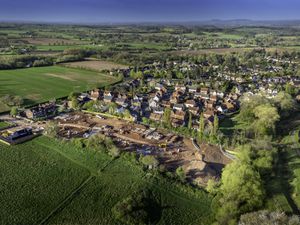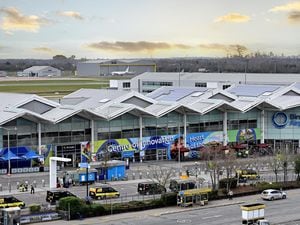Wages in the West Midlands growing faster than whole country
Wages in the West Midlands are growing at a larger rate than virtually the whole of Britain – even outstripping London.

The figures obtained by the Labour Party show that pay packets in the region grew in real terms by two per cent in 2015 and three per cent in 2016.
It means the West Midlands is the joint best performing region in England, Wales and Scotland.
Only Northern Ireland performed better with a six per cent growth in wages in 2015 followed by a two per cent rise last year.
The figures put the West Midlands ahead of London, the South East, and the South West of England, traditionally the most prosperous parts of the country.

Dudley South Conservative MP Mike Wood said: “It is fantastic news for the West Midlands that the growth in wages here is the best in Britain.
“That means more money in hard-working people’s pockets.
“We have record numbers of people in work. record-low unemployment, and the economy is strong.”
The House of Commons Library analysis of the Office of National Statistics figures were requested by the Labour Party.
The party said that since 2010, wages in the West Midlands had on average gone down by 0.4 per cent a year in real terms.
It shows that wages decreased by one per cent in 2010, went down by four per cent in 2011 with a further fall of two per cent in 2012.
Wages rose by one per cent in 2013, before a two per cent fall in 2014 and rises of three per cent and two per cent over the last two years.
The figures for 2015 and 2016 put the West Midlands joint with the East of England.
Rebecca Long-Bailey, Labour’s shadow business secretary, said: “The Government’s record on the economy is one of failure, with productivity and real wages lower now than they were in 2007.
“Higher wages act as a spur for firms to invest in new technology and skills so as to become more productive and maintain profitability.
“Labour will boost wages and productivity by introducing a £10 an hour minimum wage by 2020, putting more money in people’s pockets and building an economy that works for the many not the few.”
But Mr Wood says Labour had no idea how it would fund its proposals.
He said: “The truth is the economy is growing and businesses are doing well, especially here in the West Midlands, and it is the Tories who gave Britain the country’s biggest ever pay rise by introducing the living wage. It’s a shame Labour is trying to give a misleading impression. They can keep making promises which are full fantasy but the public is starting to see through their nonsense.”
Average weekly pay in the West Midlands is £535 a week, according to official figures. This is up from £517 a week in 2013.
Latest employment figures show 2.6 million people are working in the West Midlands, and the number has increased by 10,000 people over the past year.
Wages are expected to rise by only one per cent in the next year because of an oversupply of job applicants, according to a new forecast.
The report, by the Chartered Institute of Personnel and Development (CIPD) and staffing group Adecco, said a strong workforce – boosted by an increase in workers from the European Union – means 24 applicants are chasing every low-skilled job, there are 19 candidates for every medium-skilled vacancy and eight for every high-skilled post.
Pay increases of one per cent would lag further behind inflation which currently stands at 2.6 per cent and could rise further. Employers surveyed cited the national minimum wage as a 'brake' on pay growth





